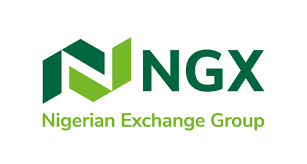Nigerian Exchange Group Listing Won’t Address Liquidity Crisis, Says Brokers

Dealing members of the Nigerian Exchange took a dispassionate look at the planned listing of the shares of the Exchange and concluded that it is not capable of addressing critical liquidity conditions at the exchange.
Nigerian Exchange Group Plc. (NGX Group) last Thursday announced it will list a total of 1,964,115,918 of its shares on the main board of the Nigerian Exchange Ltd. (NGX) having satisfied the regulatory requirements and the approval of the Securities and Exchange Commission (SEC).
The NGX Group explained that the listing came on the heel of the successful completion of the demutualisation and restructuring of the Nigerian Stock Exchange and related operations within the NGX Group.
However, stockbrokers who spoke to InsideBusinessNG are of the view that the major challenge facing the capital market is that of scarce liquidity, insisting they don’t see the listing of the shares of the Exchange itself addressing the problem.
“I don’t see the listing addressing the critical problem of the market which is liquidity challenge. That has not been addressed,” said the Managing Director, Valmond Securities Limited, Tajudeen Olanrewaju.
Two other dealing members of Nigerian Exchange who didn’t want to be mentioned restated a similar view, but added that the factors militating against the liquidity condition of the market are clearly outside the market.
Following the successful completion of the demutualization and restructuring of the former Nigerian Stock Exchange and the planned listing on the Main Board of what is now called the Nigerian Exchange (NGX), the leadership of the NGX Group said the proposed listing presents opportunities for deepening the capital market.
Speaking during the Facts Behind the Listing, the Chief Executive Officer, NGX, Temi Popoola stated that “Demutualization strategically places NGX Group in a position to provide liquidity to members while stimulating the capital market ecosystem to grow at the same pace as the economy. Furthermore, this move will see The Exchange evolve in a fashion similar to other demutualized exchanges, which have experienced significant periods of growth following their demutualization.”
But Tajudeen who trades under Valmond Securities Limited said he does not see the demutualisation of the Exchange addressing the critical problem of liquidity which he attributed to the failure of the CBN to give loans to banks to also support the market.
“This liquidity challenge came from the fact that the Central Bank of Nigeria (CBN) has not given loans to banks to also support the market. Credit drives activities in any economy.
“The liquidity challenge has made it difficult for companies to discover the appropriate share prices.
“This means that companies shares are trading below their true value. That has made it difficult for them to raise capital from the market. Companies should be able to raise capital from the market at a low cost of capital.
“Don’t forget the major reason companies go to the exchange to list their shares is for them to be able to access new capital at the lowest possible cost. If they are not able to do so after the listing, why should they retain the listing?
“In other words, companies shares are being mispriced not because the companies are not doing well but because there is no liquidity to appropriately price those instruments. Will listing the shares of the Nigerian Exchange Group on its platform address this situation? That’s not possible,” Tajudeen, a senior dealing member of the exchange told InsideBusinessNG.
Also commenting, the Managing Director of Highcap Securities Limited, David Adonri, said the completion of the demutualisation process of the Nigerian Exchange may boost investor confidence in the market considering the fact that the corporate governance structure of the exchange may be strengthened.
According to him, the board of demutualised exchange will take more quality decisions which will enhance market confidence.
Insidebusiness.ng





